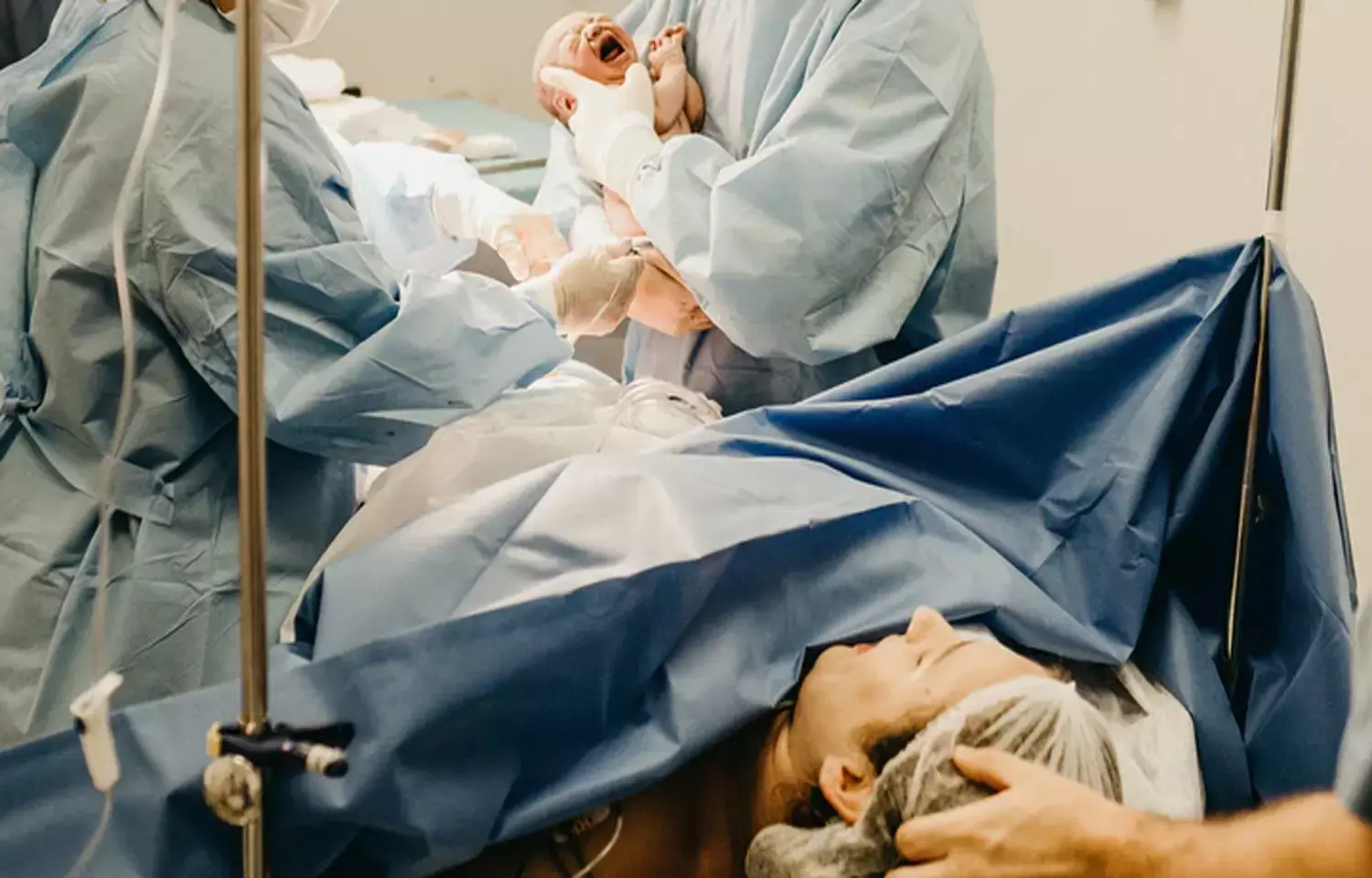- Home
- Medical news & Guidelines
- Anesthesiology
- Cardiology and CTVS
- Critical Care
- Dentistry
- Dermatology
- Diabetes and Endocrinology
- ENT
- Gastroenterology
- Medicine
- Nephrology
- Neurology
- Obstretics-Gynaecology
- Oncology
- Ophthalmology
- Orthopaedics
- Pediatrics-Neonatology
- Psychiatry
- Pulmonology
- Radiology
- Surgery
- Urology
- Laboratory Medicine
- Diet
- Nursing
- Paramedical
- Physiotherapy
- Health news
- Fact Check
- Bone Health Fact Check
- Brain Health Fact Check
- Cancer Related Fact Check
- Child Care Fact Check
- Dental and oral health fact check
- Diabetes and metabolic health fact check
- Diet and Nutrition Fact Check
- Eye and ENT Care Fact Check
- Fitness fact check
- Gut health fact check
- Heart health fact check
- Kidney health fact check
- Medical education fact check
- Men's health fact check
- Respiratory fact check
- Skin and hair care fact check
- Vaccine and Immunization fact check
- Women's health fact check
- AYUSH
- State News
- Andaman and Nicobar Islands
- Andhra Pradesh
- Arunachal Pradesh
- Assam
- Bihar
- Chandigarh
- Chattisgarh
- Dadra and Nagar Haveli
- Daman and Diu
- Delhi
- Goa
- Gujarat
- Haryana
- Himachal Pradesh
- Jammu & Kashmir
- Jharkhand
- Karnataka
- Kerala
- Ladakh
- Lakshadweep
- Madhya Pradesh
- Maharashtra
- Manipur
- Meghalaya
- Mizoram
- Nagaland
- Odisha
- Puducherry
- Punjab
- Rajasthan
- Sikkim
- Tamil Nadu
- Telangana
- Tripura
- Uttar Pradesh
- Uttrakhand
- West Bengal
- Medical Education
- Industry
Negative pressure wound therapy prevents SSI in fat women undergoing C section: BMJ

Australia: Prophylactic closed incision negative pressure wound therapy (NPWT) may be effective in preventing surgical site infection (SSI) in obese women undergoing cesarean section, finds a recent study in BMJ. However, NPWT use was associated with a small but significant skin blistering risk.
Postoperative wound complications including dehiscence, SSI, formation of seroma, and hematoma are common complications of surgical procedure, especially in women with diabetes, obesity, or both undergoing C-section. SSI is a global concern contributing to re-intervention and treatment, delayed wound healing, increased length of hospital stay, and in some cases death. Maternal obesity increases the woman's risk of developing SSI and other wound complications threefold, which delays recovery, increases discomfort, and reduces the quality of life.
Brigid M Gillespie, Griffith University, Gold Coast, Qld, Australia, and colleagues aimed to determine the effectiveness of closed incision negative pressure wound therapy (NPWT) compared with standard dressings in preventing surgical site infection in obese women undergoing caesarean section.
For this purpose, they conducted a multicentre, pragmatic, randomised, controlled, parallel group, superiority trial across four Australian tertiary hospitals between October 2015 and November 2019. It included 2035 women having a pre-pregnancy body mass index of 30 or greater and gave birth by elective or semi-urgent caesarean section. They were randomized before the caesarean procedure to closed incision NPWT (n=1017) or standard dressing (n=1018). Allocation was concealed until skin closure.
The primary outcome was cumulative incidence of SSI.
The pre-specified primary intention to treat analysis was based on a conservative assumption of no SSI for a minority of women (n=28) with missing outcome data. Post hoc sensitivity analyses included best case analysis and complete case analysis.
Key findings of the study include:
- In the primary intention to treat analysis, SSI occurred in 7.4% women treated with closed incision NPWT and in 9.7% women with a standard dressing (risk ratio 0.76).
- Post hoc sensitivity analyses to explore the effect of missing data found the same direction of effect (closed incision NPWT reducing SSI), with statistical significance.
- Blistering occurred in 4.0% women who received closed incision NPWT and in 2.3% who received the standard dressing (risk ratio 1.72).
"Prophylactic closed incision NPWT for obese women after caesarean section resulted in a 24% reduction in the risk of SSI (3% reduction in absolute risk) compared with standard dressings," wrote the authors.
"The results need to be considered alongside the growing body of evidence of the benefit of closed incision NPWT and given the number of obese women undergoing caesarean section globally. The decision to use closed incision NPWT must also be weighed against the increases in skin blistering and economic considerations and should be based on shared decision making with patients."
Reference:
The study titled, "Closed incision negative pressure wound therapy versus standard dressings in obese women undergoing caesarean section: multicentre parallel group randomised controlled trial," is published in the journal BMJ.
DOI: https://www.bmj.com/content/373/bmj.n893
Dr Kamal Kant Kohli-MBBS, DTCD- a chest specialist with more than 30 years of practice and a flair for writing clinical articles, Dr Kamal Kant Kohli joined Medical Dialogues as a Chief Editor of Medical News. Besides writing articles, as an editor, he proofreads and verifies all the medical content published on Medical Dialogues including those coming from journals, studies,medical conferences,guidelines etc. Email: drkohli@medicaldialogues.in. Contact no. 011-43720751


